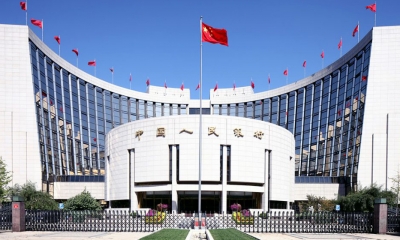High Inflation in the West Affects Global Economy

A review of history tells us that every important inflation in the world’s major countries would wreak havoc on the global economy.
Recently, the economic data with high CPI released by Europe and America in August has attracted the market’s attention. In particular, CPI in the euro zone has increased by 9.1 percent year-on-year, a record high since 1991. Though the U.S.’ CPI started to fall after reaching the highest point of 9.1 percent in June, it still stood at a high level of 8.3 percent in August. The data have greatly defied people’s expectation that high inflation would disappear in the short term, and more people started to realize that prices are likely to rise.
Reasons are obvious. Europe is facing a massive energy crisis. Due to its gas and oil crunch, electricity prices in European countries have skyrocketed, with a 10-fold year-on-year increase in some countries. As winter approaches, residents’ demands for heating will push up the price of energy, thus contributing to higher prices in Europe. The U.S. has sufficient energy though, the high energy price also led to higher commodity prices. More importantly, the American COVID-19 policies have resulted in labor shortages and rising wages, causing a vicious circle in which high wages and high inflation compound each other.
Facing the worst inflation since the 1980s, Europe and the U.S. are tightening monetary policies. Since March of this year, the U.S. has increased the interest rate four times and by 300 percentage points, the fastest increase in four decades. The European central bank has also announced the biggest interest rate rise in two decades. Therefore, the tremendous social pressure brought by high inflation is almost a dead end for Europe and the U.S. The only way out is to control the rising inflation by increasing interest rates.

However, most economies, including those in Europe and the U.S., have yet to fully recover from the COVID-19 pandemic, and increasing interest rates will steer their economic growth into negative territory. The U.S. economy has registered negative increase for the period of two consecutive quarters. Meanwhile, the short-term interest rate of government bonds has shot up, reflecting the market’s pessimistic attitudes towards the U.S. economic outlook. Though euro zone’s economy has grown in the first half of the year, it faces a dark future and even has a good chance of falling into recession this year, due to the huge shock wave of an energy shortage affecting industrial production.
Fundamentally, the main reason for the current high inflation is the super-easy monetary policy previously adopted by Western developed countries. Given the U.S. dollar, euro and other international currencies’ role, many developing countries are facing even worse situations than Western countries. In particular, since the start of the aggressive interest rate rise by the Fed, non-U.S. dollar currencies have depreciated significantly. The exchange rate of developed economies’ currencies like the pound, euro, and yen against the U.S. dollar have dropped. Worse still, currencies of emerging economies like Pakistan, Egypt, Ghana, and Turkey, have even been undersold. Some central banks in developing countries have to follow suit and increase interest rates to avoid greater depreciation. The huge inflation in Western countries has severely shocked the global economy.
Of the main economies, China’s CPI has been kept within a normal range. Since 2022, its highest CPI stands at 2.58 percent, a trivial change compared with previous years. Firstly, this is because China has a relatively complete industrial system, and can better absorb the rise in prices of raw materials like energy, which allows the central bank to adopt more flexible monetary policies to support economic growth. For example, since the start of this year, China has cut one-year loan prime rate (LPR) and LPR longer than five years twice and three times respectively, with the former down by 15 percentage points and the latter down by 35 percentage points. Such a move has lowered businesses’ financing costs and reduced residents’ pressure of housing loans and consumption loans, boosting the real economy. According to the August data by the National Bureau of Statistics, indicators including output of industrial companies with annual revenue of more than RMB 20 million, total retail sales of consumer goods, fixed-asset investment, and fiscal revenue have all risen compared with previous months. The rising inflation across the world underlined China’s economic resilience.
However, we must attach great attention to the rising inflation in Western countries. A review of history tells us that every important inflation in the world’s major countries would wreak havoc on the global economy. For example, after the First World War, the hyperinflation caused by the super-easy monetary policy taken by countries like Germany and the chaotic monetary policies in some Western countries played a part in helping the right wing forces in Germany take office and served as one of the crucial triggers behind the Great Depression.
As a result, it is likely that high inflation and the monetary policies in major Western countries can harm the global economy. In this regard, while stepping up domestic high-tech advancement and safeguarding supply chains, China should also strengthen economic cooperation with other countries. In addition, China should also enhance communication and coordination in macroeconomic policies with other countries to jointly promote economic globalization, thus providing a favorable environment for the country to register long-term and stable economic growth.
 Facebook
Facebook
 Twitter
Twitter
 Linkedin
Linkedin
 Google +
Google +







